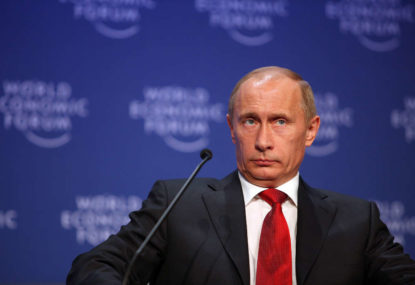Chinese Grand Prix talking points: Stroll has become the most hated F1 driver in a long time - but that's simply an unfair call!
The absolute vitriol against the Canadian that has come from the incident is beyond reprehensible.

The Russian Grand Prix. It wasn’t so bad, hey? With expectations at record lows, the explosive though admittedly sparse on-track action went some way to satisfying an audience that was treated to less than an hour of dry running before qualifying.
This was due to a series of unfortunate events, including Carlos Sainz’s crash and a bizarre diesel spill.
Where many may have been outright disappointed, however, was in the #putinwatch count, which returned a paltry two sightings despite consensus suggesting Russian president Vladimir Putin was far and away the most exciting thing about the 2015 event.
Indeed, were it not for Vlad’s awkward post-race appearances in the driver green room and on the podium, which one assumes will now become a tradition for the race, we might have had only Mercedes’ second consecutive constructors’ title victory to talk about – and no-one wants that.
But Putin’s presence was always going to be as conspicuous as his absence, because in his appearances on our television screens is the makings of the debate about Formula One in the global political context.
The Russian Grand Prix is not the first instance of the sport having to walk the fine line between sport and politics – the cancellation of the 2011 Bahrain Grand Prix by organisers in the midst of the Bahraini uprising being a modern example, alongside the six-year hiatus of the South African Grand Prix in protest of apartheid between 1986 and 1991.
Beyond the morality of making any such decision – which is itself difficult to agree upon in a sport comprising thousands of personnel from countries around the globe – Formula One is mandated to consider the grey areas it may walk into by Article 1 of the FIA Statutes, which reads:
“The FIA shall refrain from manifesting racial, political, or religious discrimination in the course of its activities and from taking any action in this respect.”
The article clearly sets out that the goal is to make decisions based purely on politics, but it is sufficiently vague to be non-prescriptive about where a line may be drawn should the sport ever considering invoking the principle.
Hosting a Russian Grand Prix under a contract agreed in 2010 is surely not for the consideration of this statute article, nor is the presence of Putin at a race supported by the government – not that anyone could stop the bear-riding, tiger-wrestling, archaeologist head of state from doing so in any case.
But was Bernard Charles Ecclestone chummily welcoming the president to the paddock for the second year in succession taking Formula One a step into the grey year, perhaps unnecessarily?
Modern-day Formula One is often likened to a circus – no matter where it pitches its big top, the show is the same. Once you enter the tent, the world outside melts away until only the centre ring remains.
Certainly this is the argument used when Formula One finds itself walking the fine line between keeping tack in a politically-sensitive environment – Formula One and the real world exist independently and never the two shall meet. But is it possible for a business as large as Formula One, with investments from all corners of the globe, to truly remove itself from the geopolitical machinations of the nations playing host to its races?
The difficulty in finding an equation that might serve the sport in all situations is that setting a threshold is fraught with complications. The situation between Russia and ‘the West’, if such things can be described so simply, is well known, but how does it compare with the varying tensions parts of the world have with China, or the United States, or Azerbaijan, all of which feature on the 2016 calendar?
Whose priorities are served when Formula One wades into these situations, and what inverse effect would its refusal to engage with the likes of Putin or other contentious world leaders have?
There can be no easy answer, but perhaps starting with the imprecise – with, as much as I hate the phrase, the ‘pub test’ – can act as a guide.
It’s a hard balance to find, and naturally the sport will trip-up from time to time, but do you think Formula One’s public relationship with Putin is the right course for the sport to travel?